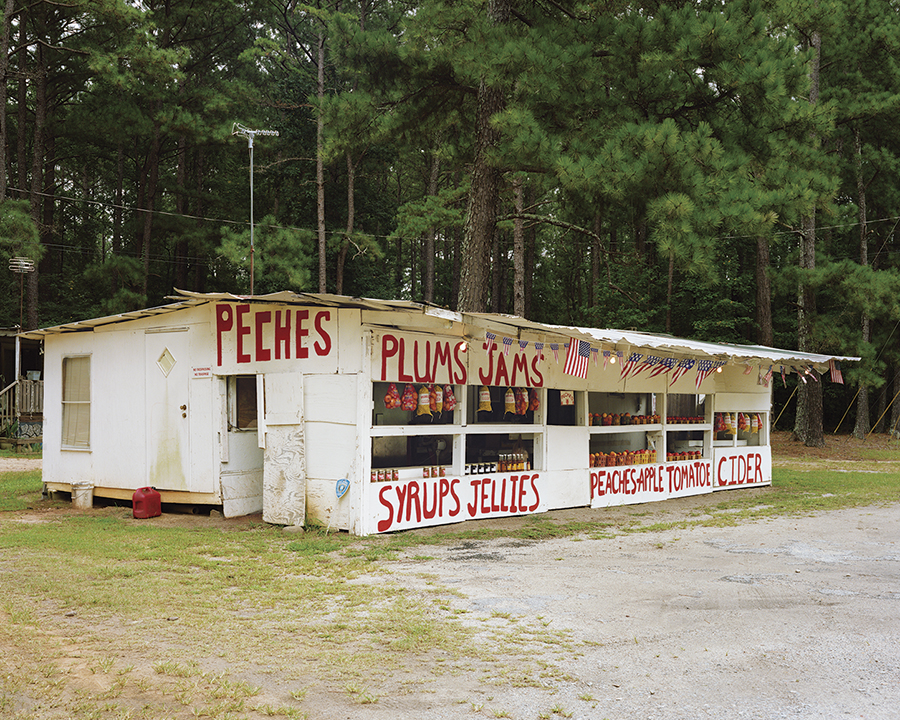
“Fruit Stand, Highway 441, Georgia.” All photographs by Tema Stauffer © The artist. Courtesy Tracey Morgan Gallery, Asheville, North Carolina
My mother was born in a tiny structure that once was a slave cabin. Her natal town was Eatonton, Georgia, a place that still exists, the birthplace of Joel Chandler Harris and Alice Walker, as well as other storytellers whose names are remembered only by the land.
Every summer Mama would drive my sisters and me down from our home in North Carolina to Georgia. We’d turn off Interstate 20 and hit Highway 441. Close to the city limits of Eatonton was a fruit stand. Without fail, Mama would stop and buy fresh produce before continuing the drive to the house where my grandmother lived, after she’d moved from the country into the tiny city proper of Eatonton.
Those seasons in Eatonton sweltered. I walked through town with the children of my grandmother’s neighborhood. I waved politely at the old folks on their porches. Sometimes the elders would call me over to their rocking chairs.
They’d ask, “I know you, child? Who your people?”
Meaning: Who was my family? Who had raised me? Who had taught me how to behave among the members of my Black community?
I was on social media—Twitter—when a photo came down my timeline: “Fruit Stand, Highway 441, Georgia.”
Back when I was a younger writer, I would have ridiculed anyone who penned the sentence: “I caught my breath.” But I did, for there was the landmark so familiar to me, that rickety fruit stand on the limits of Eatonton, with the misspelling—peches—painted in red on the side.
I became a little girl again, riding in the back of my mother’s car as she drove my sisters and me to my grandmother’s house. Then I became a young woman, driving my own car and finally able to keep my own schedule. I’d stop at the fruit stand and buy the sweetest of peaches. I’d return to sit in the car and murmur and cogitate, for journeying home after a long absence is a fearful enterprise.
After I posted the picture of the stand—I now think of it as my stand—and tagged the photographer, she wrote to me. Her name was Tema Stauffer and her warmth was a balm. She sent me more of her photographs, and through her images I returned to my beloved South.
There was the clapboard sanctuary creaking with hymns: “Church, Highway 47, Alabama.”
There were the muddy stains on ancient planks in “White House, Perdue Hill, Alabama.”
There was the automobile, one that might glide through uncertain and haunted Southern forests, in “Silver Car, Elraine Subdivision, Jackson, Mississippi.”
In “Eudora Welty’s Bedroom, Jackson, Mississippi,” there was the old lady’s bed covered with chenille. I could almost hear a woman shouting at me to wipe my feet before I stepped into a soap-scented tomb.
There was Richard Wright’s boyhood home: “East Woodlawn Avenue Where Richard Wright Grew Up, Natchez, Mississippi.” Like my mother, Wright was reared during the Jim Crow era. Eventually he’d depict the terrors of Mississippi in his work. He wanted that time to be remembered even though he mightily tried to discard it. He ran away to Paris, but he couldn’t release that pain.
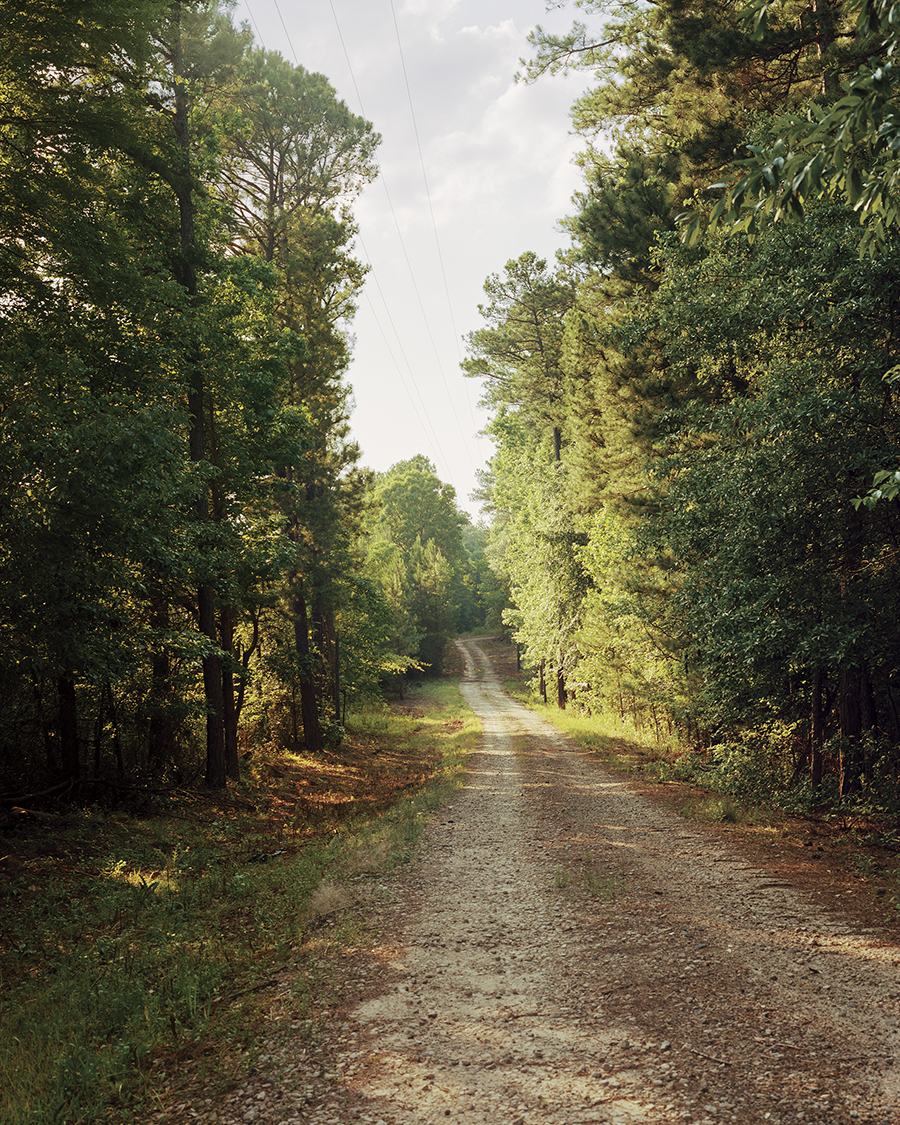
“Driveway, Wards Chapel Road, Eatonton, Georgia”
When I was that little girl walking through the tiny town of Eatonton, I tolerated those questions of the elders—Who was I? Who were my people?—because I thought I had no choice.
I loved the landscape like an exotic oasis. But the people—country Black people—embarrassed me. Their slanted grammar, their memories that returned to a terrible past of white supremacy and oppression, a history that challenged the landscape’s beauty. My elders—some my actual kin, some near strangers—told stories about their ancestors, dead people who seemed so removed from me.
For my mother, the South was a complicated place where she’d suffered under Jim Crow and attended segregated schools. And so when I arrived at adulthood, I wanted to be independent of the responsibilities to my country family and to my Black ancestors. As soon as I could I left the South, eventually settling on the flat prairie of Oklahoma—not as far away as Wright’s Paris, but far enough.
I still live in Oklahoma, where cowboys claim to be Southern, but I find that I can’t trust people who wear boots all four seasons of the year. I can’t love a place where the trees don’t grow tall, where beauty seems absent. There’s nothing here to console me when I remember the violence that formed this state. Violence made this place, like a body embroidered in the womb. History is a living being.
I’d long known about the violence of the South. My Georgia elders made sure I knew about that history, and as the years passed I understood that those folks hadn’t meant to frighten me. They only wanted me to carry pieces of them forward. To remember a past that went beyond the beauty I idealized.
Like Wright, I never succeeded in rejecting my history, for one day my Georgia origins reclaimed me. My tongue surrendered and a drawl emerged from my lips. My voice had absorbed history, the places where the women of my family worked with no complaint.
The yards where these women had chopped wood. The gardens where they grew their own food. The white folks’ kitchens where they’d dreamed of different lives for their children, something other than working as servants. Those Black women: enduring the night until the morning’s vowels cracked the darkness.
I began to speak in the parables and proverbs of these ancestral women. I pulled my Bible from its hiding place and traced the words. I greeted the days with the songs of my grandmother: Guide my feet while I run this race. I remembered my grandmother and my mother bookending me on a church pew. They’d been so sure of the mercy of God.
Every now and then I’ll drive back south, to the place that conjured glory and ruins in my imagination. I’ll offer gratitude because I truly miss this place. Oh, how I miss my home. (Headed toward my sixth decade, I’ve become unafraid of my sentimentality.)
The journey on the interstate east is long, and after some hours I anxiously search for the highway sign: welcome to mississippi. That state’s not where my people live, yet the sign tells me, if I’m patient, I’ll see Georgia soon.
I’ll return to the cotton fields sprinkled with white (if the season permits). To the church where the people—my people—sang spirituals. To my fruit stand beside the road. To the red clay of indelible stains.
To a history I both created and inherited.
—Honorée Fanonne Jeffers
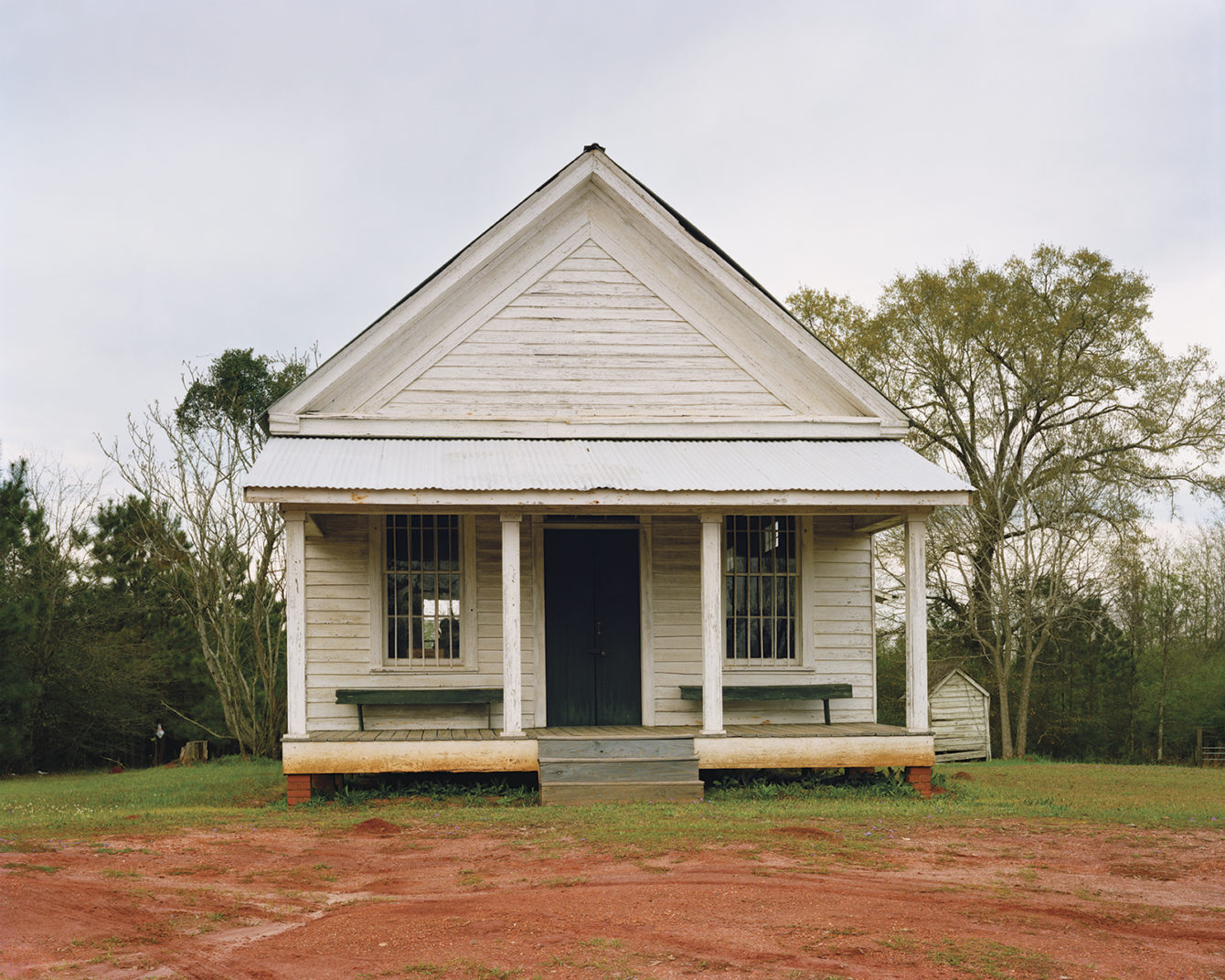
“White House, Perdue Hill, Alabama”
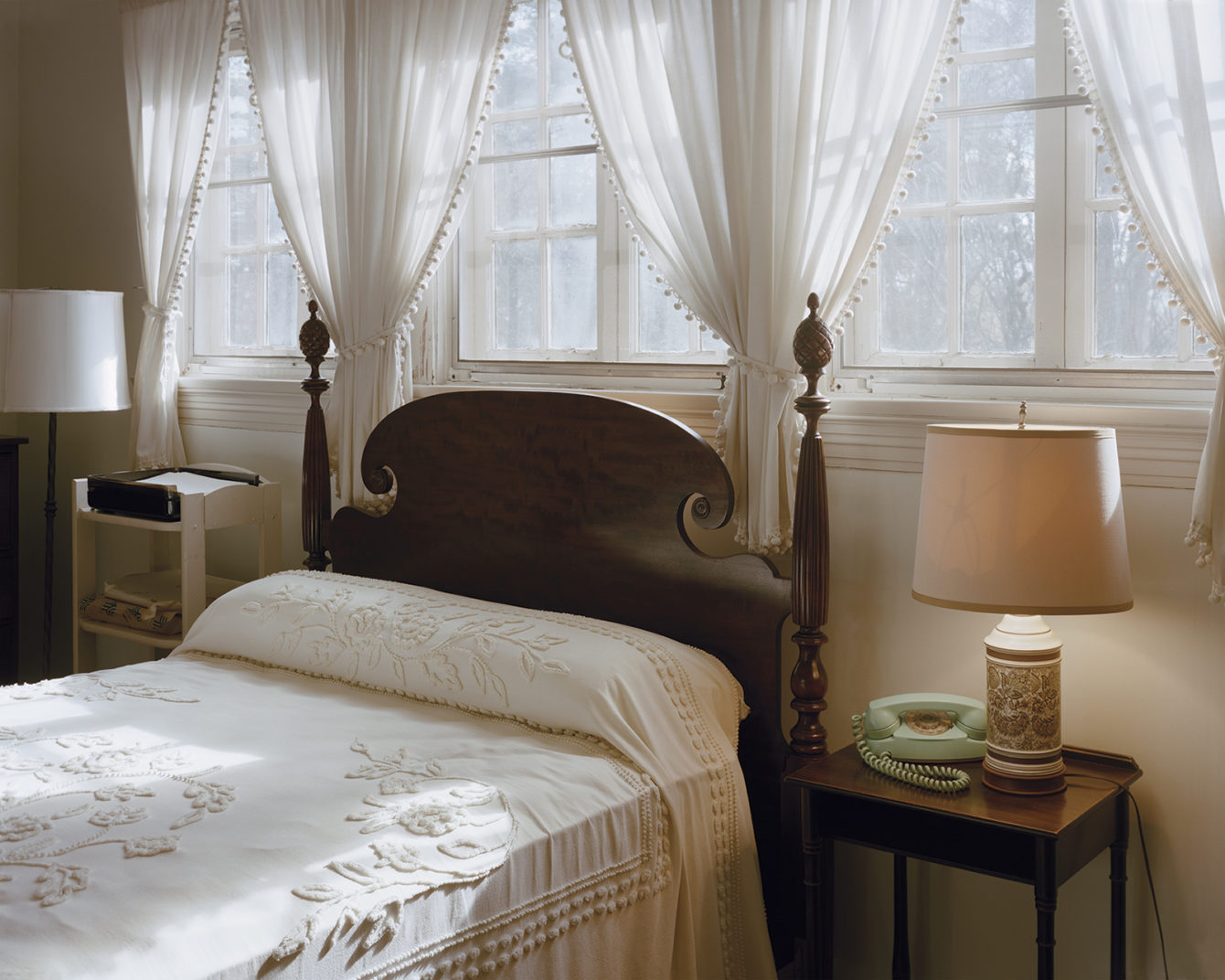
“Eudora Welty’s Bedroom, Jackson, Mississippi”
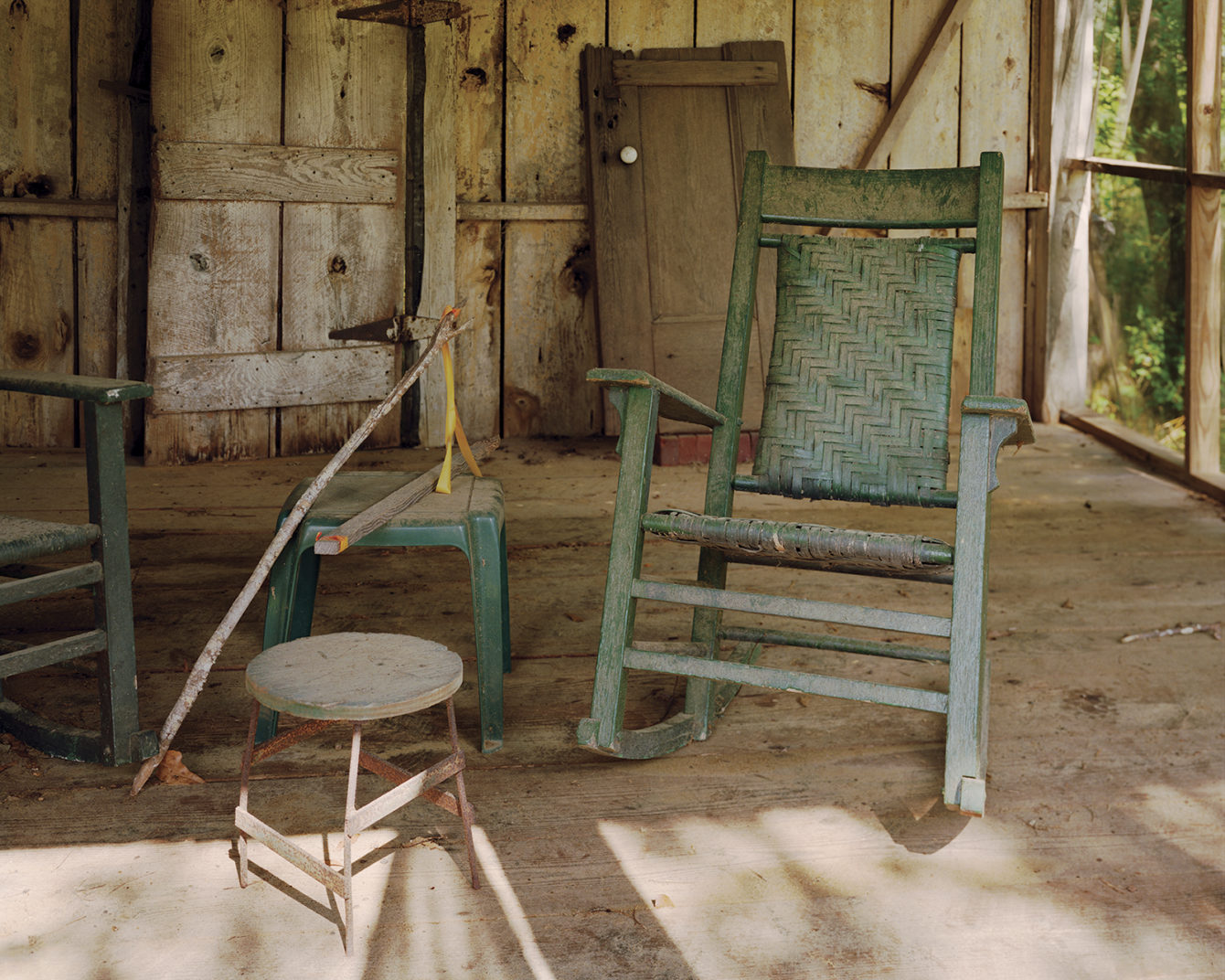
“Rocking Chair, Sparta, Georgia”
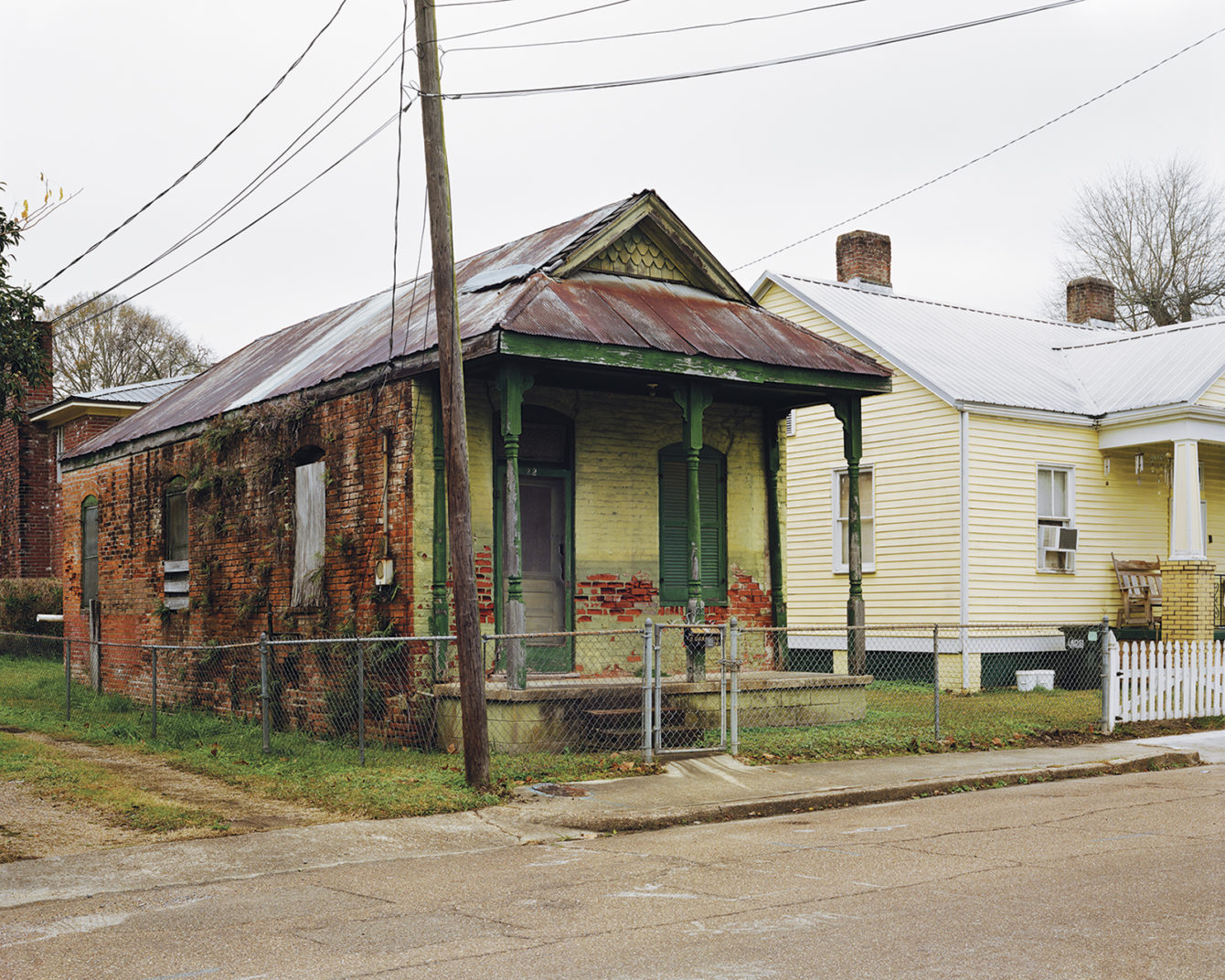
“East Woodlawn Avenue Where Richard Wright Grew Up, Natchez, Mississippi”
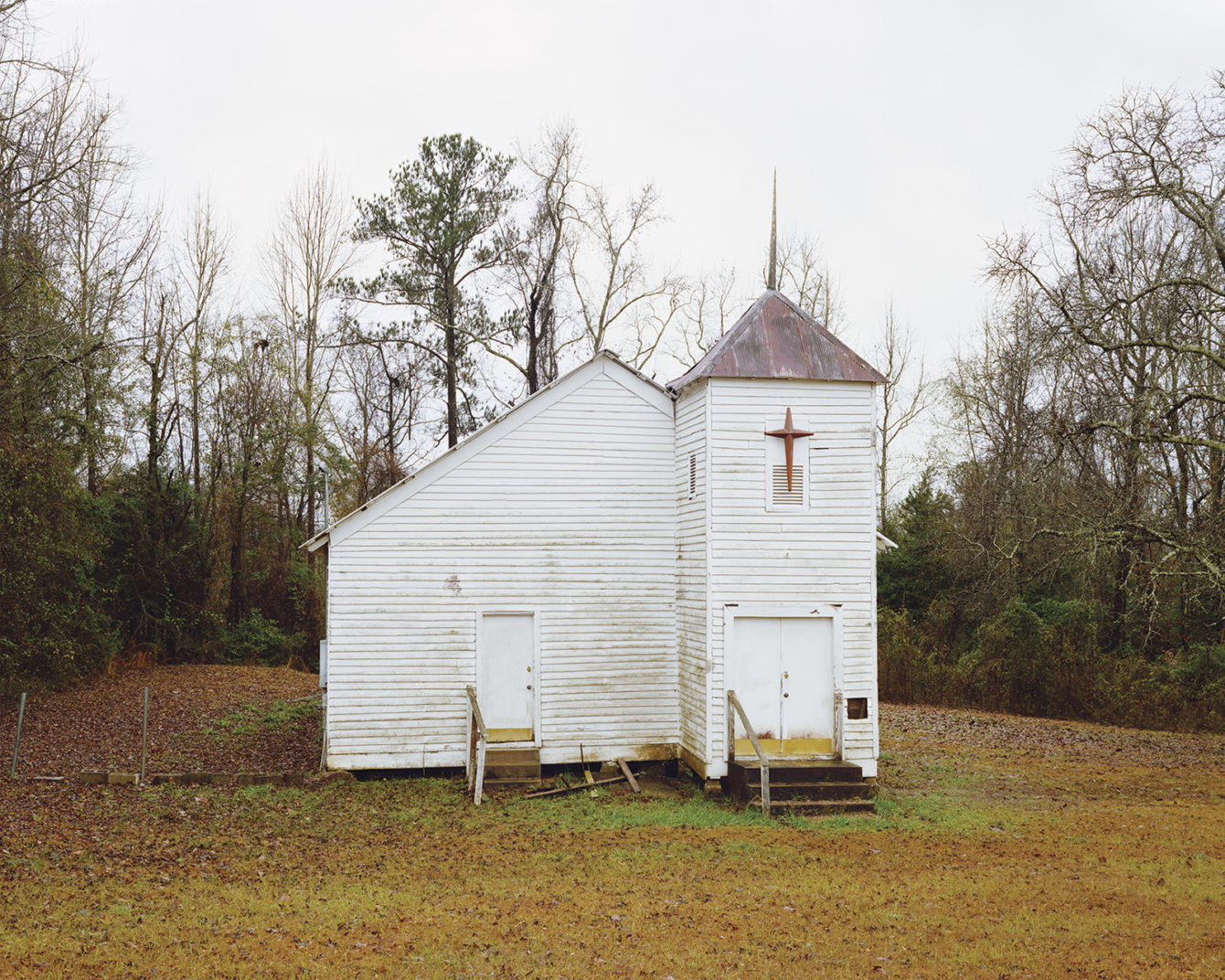
“Church, Highway 47, Alabama”
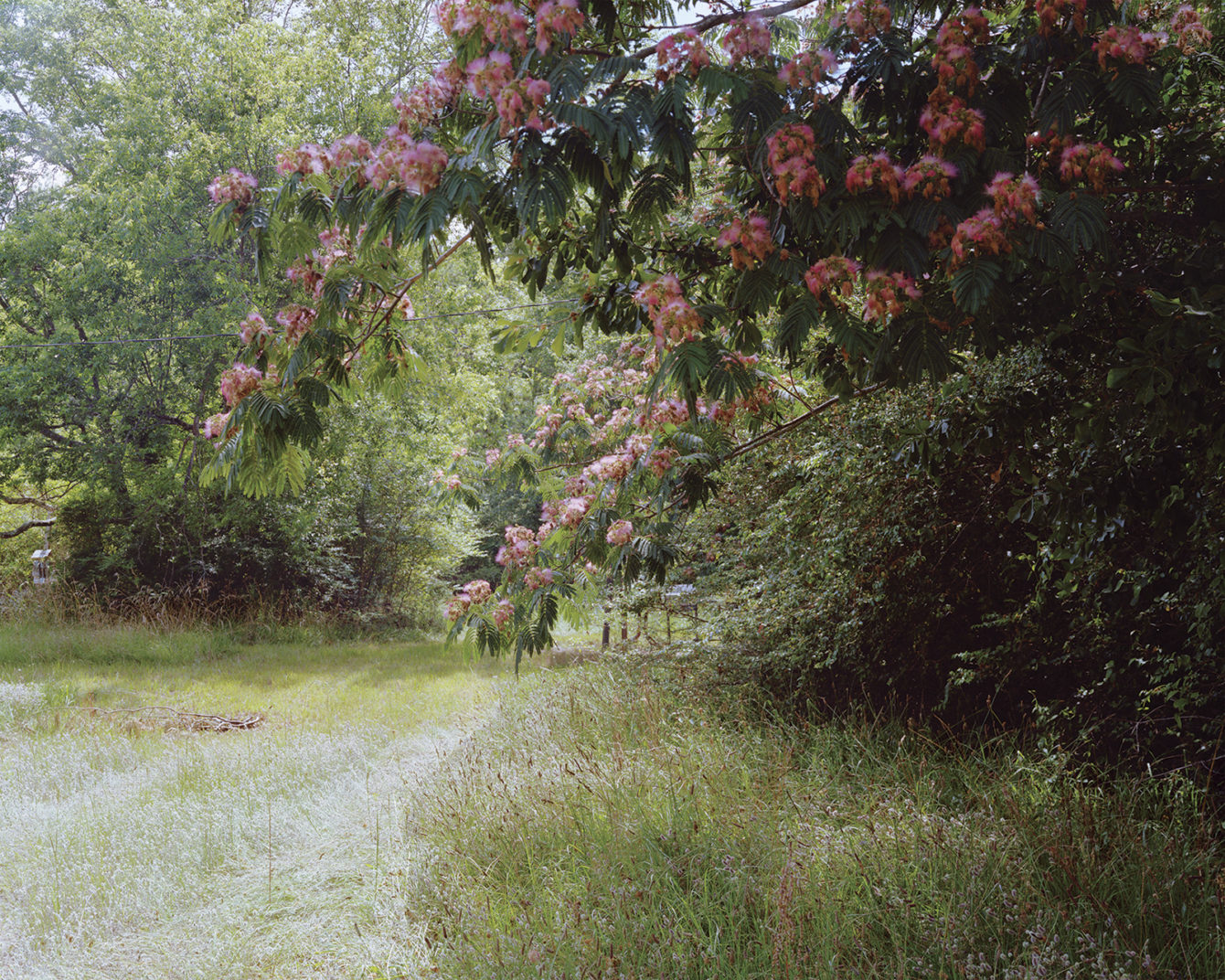
“Mimosa Branches, Sparta Highway, Georgia”






















































































